Story and photos by Jennifer Colton-Jones
In the town of Pianello, Italia, there is no Internet, no cable, and no cell phone service. Neighbors pass news to neighbors as word of mouth remains the primary way to share the good and the bad. News from the outside world comes in along Strada Provinciale 29, the tiny, winding mountain road from Cagli, 13 kilometers away.
Regional news has been spotty, limited to what large daily newspapers consider newsworthy from the rural areas.
Until now.
“No one hears the small villages,” says Guido Giovagnoli, the director of Flaminia Marche News. “The best – maybe the only – way to reach them is with the paper.”
In the days of online and television news, residents of Le Marche, a mountainous region of western Italy, have a dozen newspapers to choose from at the Cagli newsstand. Men and women still sit in the piazza with a cappuccino in one hand and a newspaper in the other, catching up on the world outside their city’s walls.
While the world outside moves toward digital news and laments the fall of print newspapers, Giovagnoli sees the world differently. Instead of drafting an online journal or an email newsletter, Giovagnoli is creating a new, local newspaper, printed and delivered to small towns.
In 2015, long after the decline of print journalism began, Giovagnoli and his partners, Giuseppe “Beppo” Fiorini and Marco Giacomini, created a print newspaper company to reach places the Internet has not yet discovered. The trio dubbed their company Classitaly and in April launched the flagship paper, Flaminia Marche News. The free paper’s coverage area includes 10 villages—about 30 square miles and 50,000 people. The mountains of Le Marche region keep towns and villages isolated, accessible only by foot or personal vehicle. In some places, like Pianello, electricity and bicycles are luxuries.
Flaminia covers news, politics, sports, healthcare, and education. It highlights local individuals accomplishing great things and gives residents a platform to voice concerns or stir discussion in their communities. Its pages hold recipes and crossword puzzles, events and city council decisions. Above all, Flaminia gives local residents knowledge of their own region.
For the three newsmen, giving those residents a voice and a window to the world is a passion. Similar to an editor-in-chief, Giovagnoli writes the editorials and coordinates day-to-day operations; Fiorini paginates, and Giacomini handles advertising.
In addition to the three-man central operation, Flaminia hires writers from each town to tell the stories of their location. Each writer has a background in journalism and a commitment to journalistic standards.
“We’re very professional,” Beppo Fiorini says. “He (Giovagnoli) is a professional. Mario (Carnali) is a professional. Roberto (Giungi) is a professional. We all worked for newspapers. We all have passion.”
Local writers send articles in to the central office. Giovagnoli and Fiorini respond to emails and coordinate contacts through a secretarial service that takes phone calls from readers and residents – in multiple languages. This allows all visitors and residents – whether they speak Italian or English, Arabic or German – to provide tips and story ideas to the local papers.
Each month, Giovagnoli and Fiorini create the paper electronically. In the afternoons, the two gather in their newly painted, mint-green office in new Cagli. They turn on the computers and begin planning where articles will go based on the advertisements sold for the next issue. They will place all the content, proofread, and give the newest issue a stamp of approval.
Once the paper is completed, they will send the publication digitally to Bologna, where the paper is printed. A truck delivers the printed product to each of the 10 villages, choosing locations such as supermarkets and cafes frequented by locals. So far, the paper has printed 10,000 copies each month, and each month, the papers have run out before the end of the month. In June, the last copy disappeared from the newsstand on June 17, weeks before the next issue would arrive.
“We can’t do enough. As soon as we put them out, people take them,” Giovagnoli says, grinning broadly. “They want more.”
The paper covers positive stories and controversial stories, from a Cagliese appearing on a national television show to heated gubernatorial elections. Giovagnoli points out that while larger papers “cut and paste” content, everything for Flaminia is generated in the region – even the Sudoku puzzle.
A veteran journalist with a doctorate in fine arts, Giovagnoli stresses the importance of a local product with local ownership.
Born in Cantiano, a village of 2,000 people 10 kilometers from Cagli, Giovagnoli says he always gravitated toward fine arts, even as a child. He developed a love of writing, literature, and philosophy.
As an adult, news became his passion: sharing stories people needed to hear. He took his passion to large newspapers, honing a craft and learning the ins and outs of the news business. After a dozen years, however, he shifted his focus to fill a need: giving voices to those too small to usually be heard.
Giovagnoli began devoting himself to free, local newspapers. He brought stories like the Amanda Knox trial to the rural residents of Le Marche and shared local stories in the region and beyond, such as a homicide in the city of Gubbio that “weighed heavily” on the local populations. Multiple stories first told in Giovagnoli’s free publications have been picked up by national and international news services.
Flaminia continues that effort and those standards, but Flaminia is only the first step for the company.
The trio behind Classitaly plans to expand into free, local papers across the region, creating five or six papers, each focusing on a specific community. Working out from Cagli-based Flaminia, they hope to create a similar product for all of Le Marche, from San Marino to Fabiano.
“It is a great passion of mine,” Giovagnoli says with a smile. “It is important.”

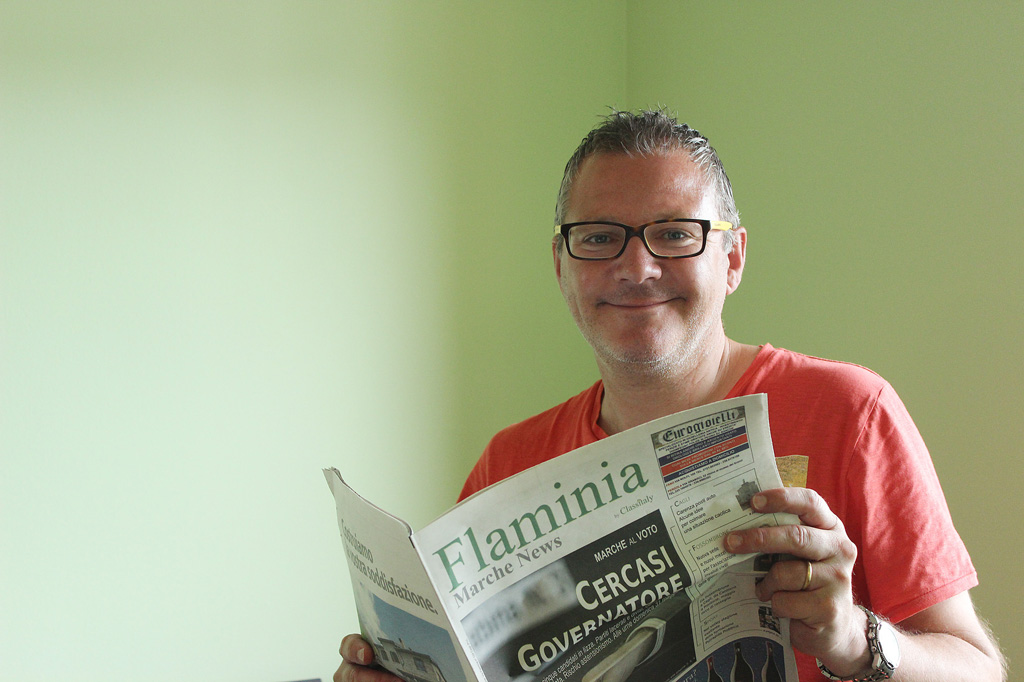
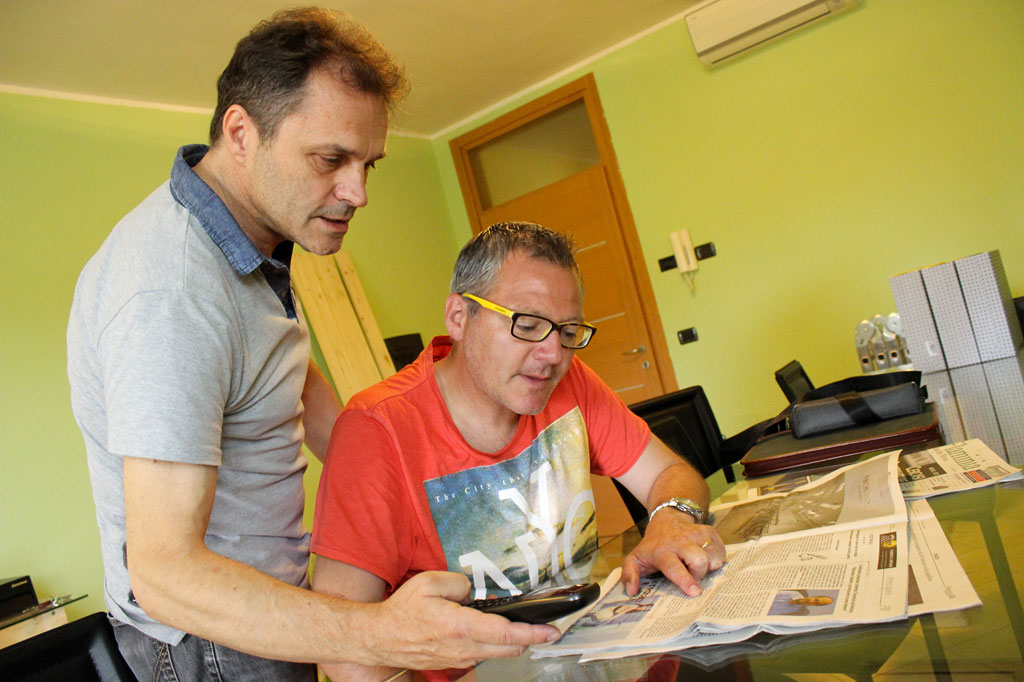
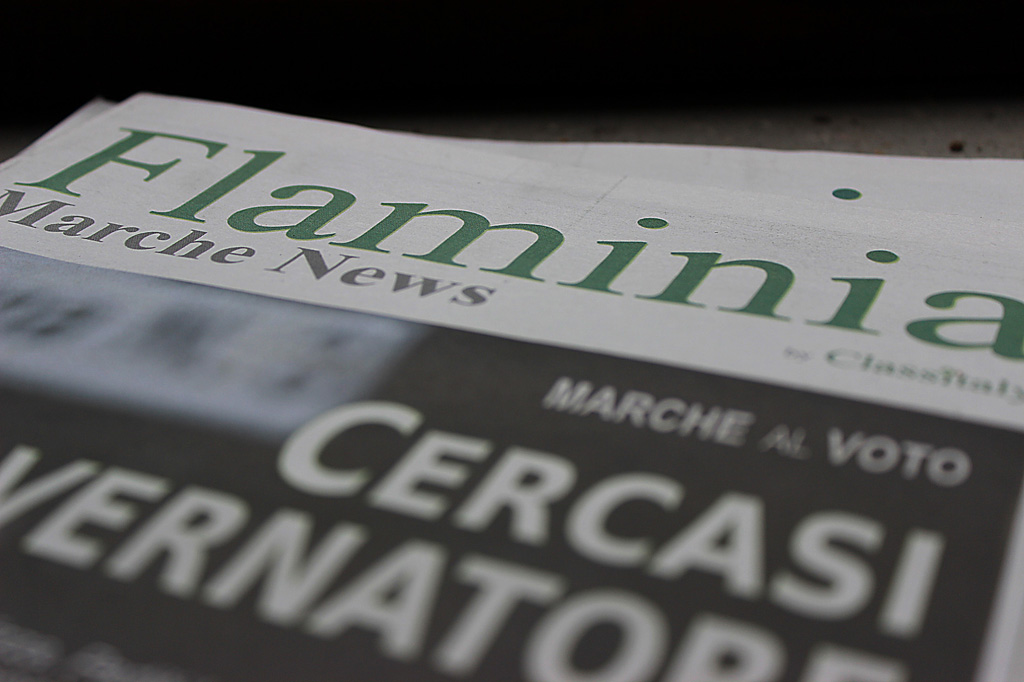
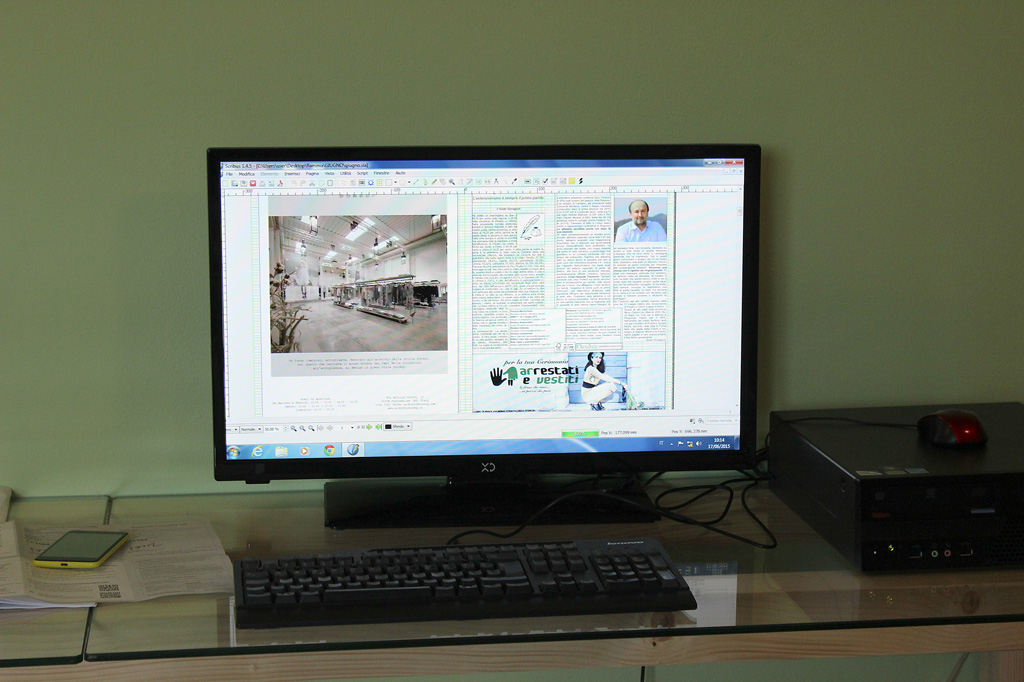
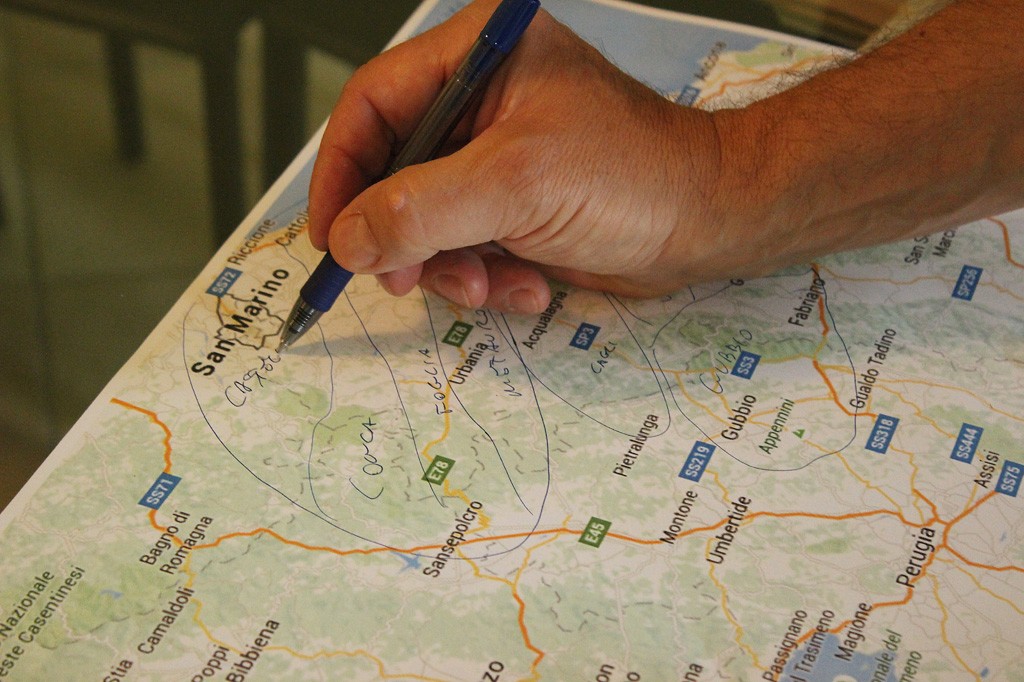
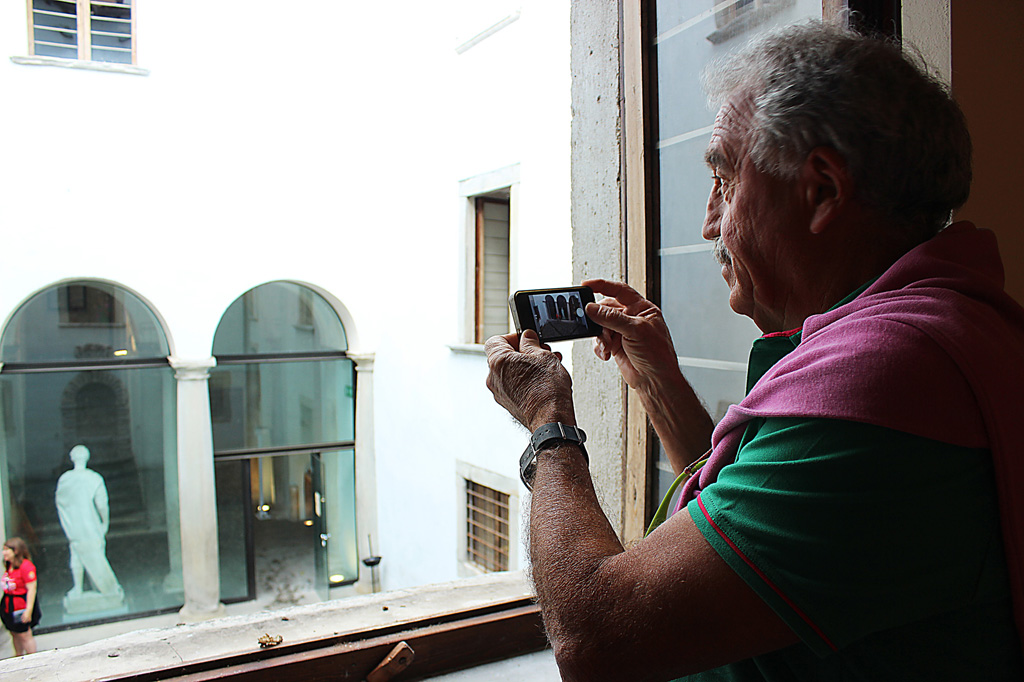
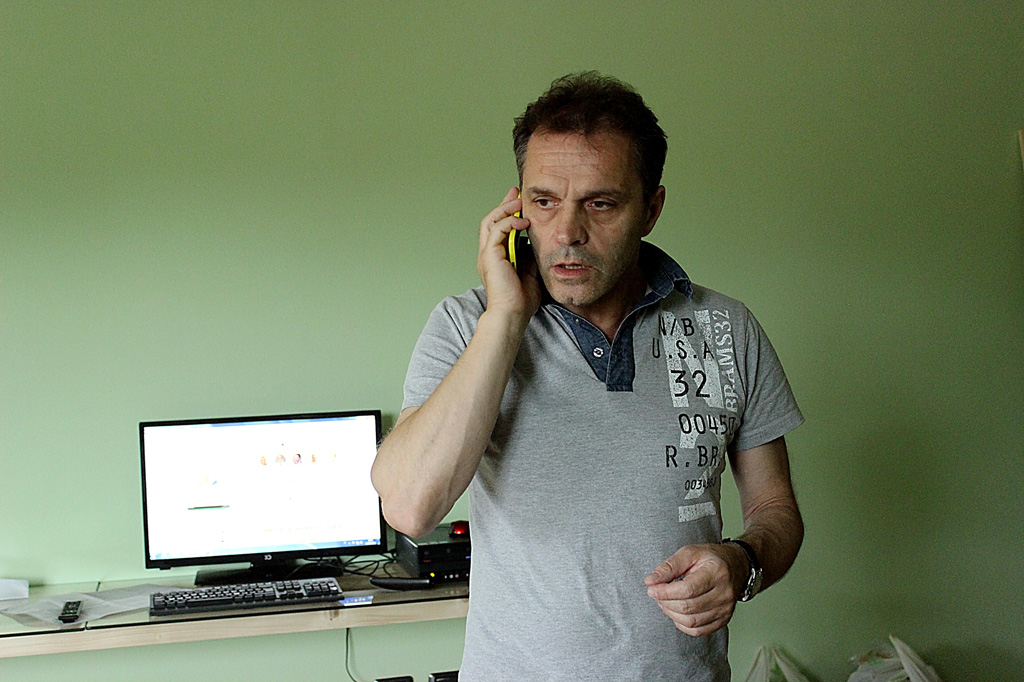
Comments